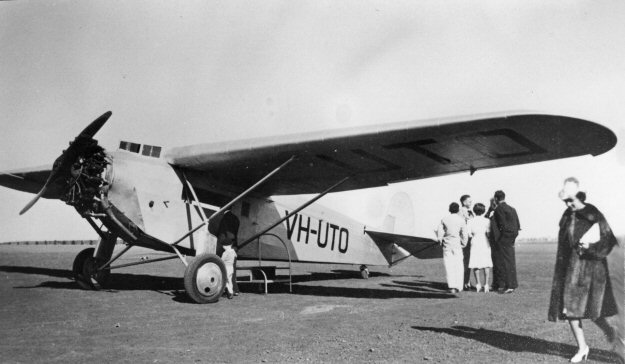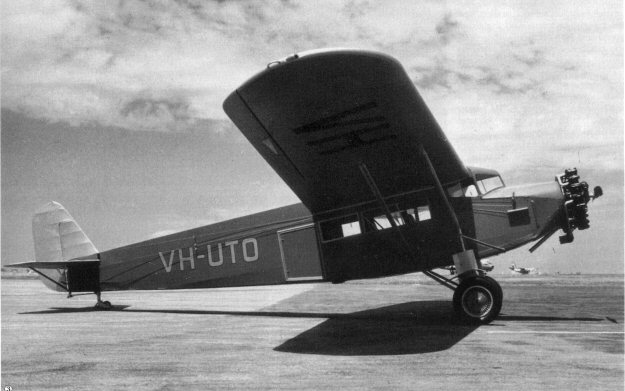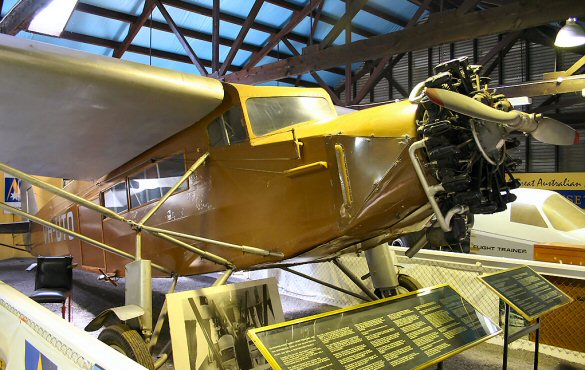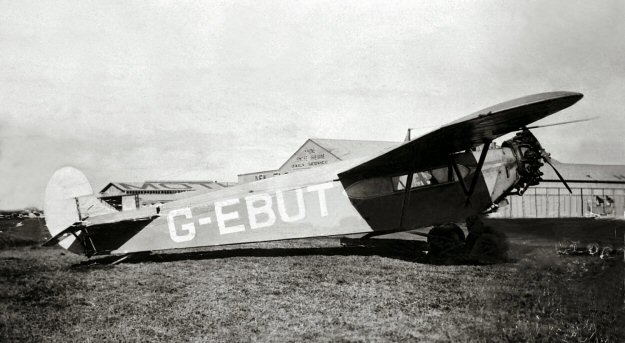VH-UTO Fokker F.XI Universal
(c/n 422)

The Universal was the first Fokker
commercial aircraft to be designed and built completely in the
United States. This manufacturing division of Fokker was
originally set up in 1923 as the Atlantic
Aircraft
Corporation, based at Teterboro. The name was changed to Fokker
Aircraft Corp in 1925.
VH-UTO was built
as G-EBUT in 1927 (assigned the US registration [NC]3199 but never
carried)
for Lady
Maia Carberry, a British aviatrix with African interests. She
took the Universal (appropriately
named 'Miss Africa') to Kenya whereupon
it was re-registered VP-KAB. It was repatriated back to
the
UK in 1929 and reverted to G-EBUT. The photo of it as G-EBUT at
the foot of the page is from
the
CAHS archives. After ownership by a
series of air taxi companies in the UK it was
purchased in
June
1935 by G.H. Purvis* and R.A. Savage of Sydney, dba
Western and Southern Provincial Airlines
(WASP)
and registered VH-UTO. By this
time, and somewhere along the way, the
original open
cockpit had been enclosed. Reg Ansett of
Hamilton, Victoria acquired it six months later (January
1936) and put it to work on his embryo
airline. Unfortunately,
VH-UTO was one of the aircraft
destroyed in the disastrous hangar fire at Essendon on 28 February
1939. The photo above is
from
the
Geoff Goodall collection and shows the Fokker probably at
Hamilton in the late 1930s whilst it
was
in Ansett service. The image below illustrates a
replica made up for Ansett Airways in the 70s.
It was
used
in company promotions as "Reg's first
airliner" then suspended from the roof of the Ansett
terminal
at
Tullamarine for a several years. Phil Vabre offers the
shot at
the foot of the page of this
replica as it
now appears. But is it really it replica? It was
built up from a genuine Fokker Universal.
* Harry Purvis had a fantastic long flying
career, recorded in a very nice book "Outback Airman"
published in the 1970s while he was still flying for Eddie Connellan.
When WW2 broke out, Harry
was flying
Lockheed 14s for KNILM, so he went into the RAAF as an instructor on
the Hudsons
then
being delivered and which were proving to have flying vices - Harry
and several other civil airline
pilots are credited with instilling the discipline needed to fly
Hudsons safely.






